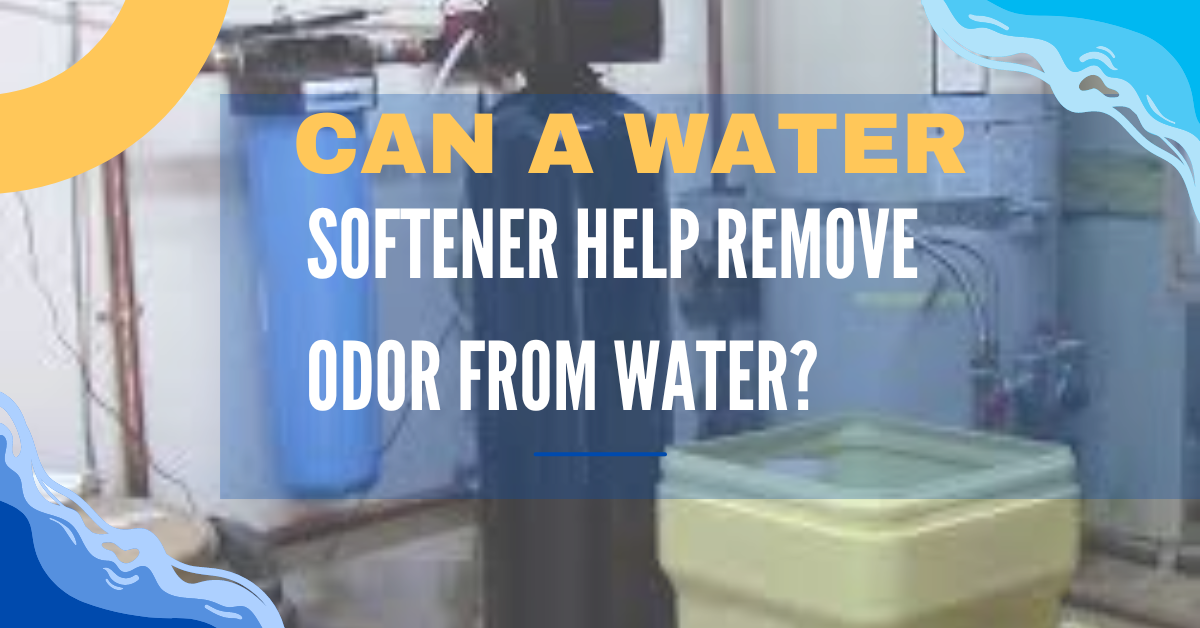Yes, a water softener can help remove unpleasant odors from your water. Hard water is the major cause of bad-smelling water because it contains minerals that react with organic material in the pipes, creating an odor. A water softener works by exchanging sodium for the harder minerals like calcium and magnesium in your tap water, which reduces the odor. The softener can also remove chlorine and other chemicals that are responsible for bad smells in your water. If you’re noticing a foul smell coming from your tap, investing in a water softener could be the solution to this smelly problem. Not only will it help improve the taste and odor of your drinking water, but it can also reduce the buildup of mineral deposits that can clog your pipes and harm your appliances.
Can You Set A Water Softener To Remove Odor From Water?
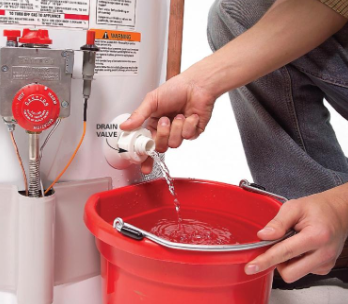
yes, you can set a water softener to help remove odor from your water. Water softener systems use an ion exchange process to swap out hard minerals like calcium and magnesium that are present in hard water with sodium ions. This process helps reduce the amount of sediment and mineral buildup in pipes, plumbing fixtures, and water-using appliances. However, it does not necessarily remove odors from the water.
Can A Water Softener Help Remove Odor From Water?
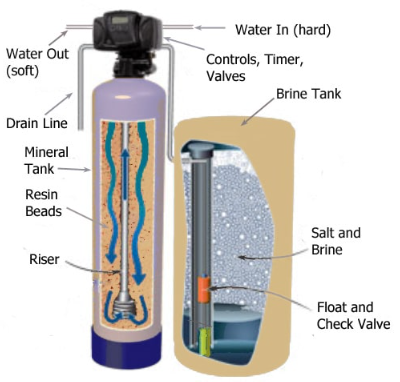
yes, a water softener can help remove odor from your water. Water softeners are designed to remove calcium and magnesium ions that can cause hard water. Hard water often has an unpleasant smell due to the chemical composition of these minerals in the water. By removing them, the unpleasant odor can be eliminated or significantly reduced.
Why Does My Water Softener Smell Bad?

The most common cause of a bad smell coming from your water softener is biological growth in the brine tank. The water used to fill and regenerate the resin bed can contain bacteria, which can grow and produce foul odors. Additionally, hard water itself may have an unpleasant odor due to its high mineral content. Over time, this odor can become more noticeable as the water softener becomes less efficient.
Do Water Softeners Remove Sulfur Smell?

Yes, water softeners can help to remove sulfur smell from water. Sulfur smells are caused by the presence of naturally-occurring sulfates and hydrogen sulfide in the water supply, which react with bacteria in the pipes to produce an unpleasant odor.
What Does A Water Softener Remove From Water That Can Cause Odor In Water?
A water softener can help remove dissolved minerals like calcium, magnesium and iron from water which are known to cause odor in water. Softened water also reduces the level of exposure to other contaminants that may be present in the water such as chlorine, lead and sediment. By removing these minerals, a water softener can help eliminate unpleasant odors from your drinking water.
What Does A Water Softener Remove From Water?
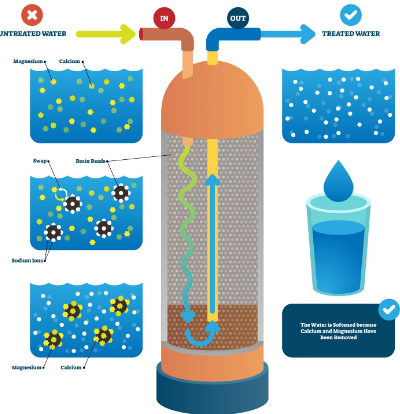
Water softeners are designed to remove certain minerals from water, such as calcium and magnesium. These minerals can cause hard water, which is unpleasant to use for washing dishes and clothes due to the residue it leaves behind. Water softeners also reduce chlorine levels in water, which can contribute to an unpleasant smell.
Different Types Of Water Odor
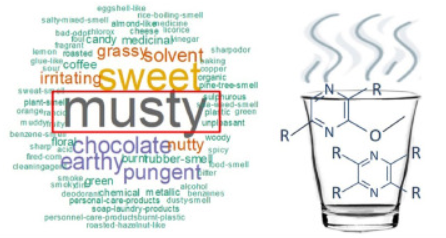
Sulfuric or rotten egg smell: This odor is caused by hydrogen sulfide gas in the water. It can be caused by a variety of factors, including bacteria growth or the presence of iron and manganese in the water.
Chlorine smell: Chlorine is often used in municipal water systems as a disinfectant. If you have noticed a chlorine smell when running your tap, it’s likely that a water softener can help reduce this odor. A water softener helps to remove dissolved minerals like calcium and magnesium from the water which can improve its taste and odor.
Musty or earthy smell: in water you can feel musty smell , this smell is caused by naturally occurring organic material like algae and decaying vegetation. A water softener can help reduce the presence of these materials, thereby reducing the odors in your water.
Metallic odor: In some cases, water softeners can help reduce odors caused by metal contaminates in the water. The softening process works to remove many of these metals, which may be leading to a metallic smell.
Common Causes Of Water Odor
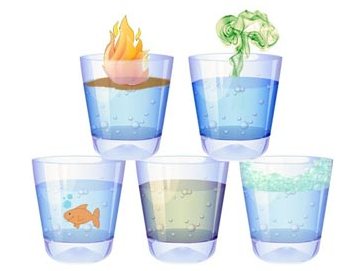
Bacteria growth: Bacteria naturally occurring in water can produce foul smelling odors.
Chemicals in water treatment: Water treatment chemicals can help to remove odor from water. Chlorine, which is commonly used to disinfect drinking and swimming pool water, can also be used to help eliminate odors in water.
Natural minerals and elements: such as sulfur and iron, can cause water to have an unpleasant odor. These elements are found in hard water, which can be identified by its cloudy or murky color.
What Can Be Done About Odors That Can’t Be Removed By A Water Softener?
If your water softener is not able to remove odors from your water, there are other options available. One method of dealing with foul smelling water is to filter it with an activated carbon filter. Activated carbon filters are commonly used in home reverse osmosis systems and can effectively reduce chlorine, VOCs (volatile organic compounds), and organic chemicals that can cause odors in your water.
Another option is to use an ozone generator, which introduces ozone into the water to break down organic matter and decrease bad odors. Ozone generators are effective at eliminating bacteria, viruses, parasites, and fungi from drinking water as well as removing unpleasant tastes and smells caused by chlorine.
It’s also a good idea to have your water tested by a local certified laboratory. They can test the water and determine what type of treatment you need to get rid of the odor-causing contaminants in your drinking water.
Finally, if all else fails, you could consider installing a whole house filtration system to filter out impurities that can cause bad odors in your water. These systems are designed to remove chlorine, VOCs, and other compounds that can make your drinking water smell unpleasant.
Benefits Of Removing Odor From Water
– Removing odors from water can improve the taste and odor of drinking water.
– It helps to reduce unpleasant smells in bathrooms, kitchens, and other areas where water is used.
– A softener can also help prevent corrosion and scale in your home’s plumbing system by reducing the concentration of hard minerals in the water.
– Removing odor from water can reduce health risks associated with bad smell, such as headaches and nausea.
– Getting rid of bad odor also eliminates unpleasant smells in laundry, dishes, and other items washed with the water.
– Softeners help to reduce dirt buildup on fixtures and surfaces that come into contact with water.
– It also helps to prevent the growth of bacteria and other microorganisms.
– Additionally, odors can be reduced or eliminated in water for swimming pools and spas.
– Softening the water often improves its clarity and makes it safer for swimming or bathing.
FAQs
What is the best type of water softener for removing odor from water?
The best type of water softener for removing odor from water is one that uses an ion exchange process to remove minerals and other contaminants. This process can also reduce the levels of hydrogen sulfide, which is a common source of unpleasant odors in tap water.
Can a water softener remove all types of water odor?
Unfortunately, not all water odors can be removed with a water softener. The majority of water softeners are designed to remove calcium and magnesium ions from hard water. These minerals can cause scale buildup in pipes and appliances throughout your home, leading to unpleasant odors.
How often do I need to replace the resin in my water softener?
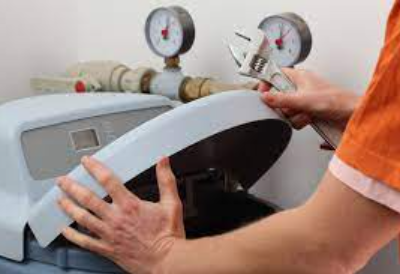
The amount of time varies depending on your water hardness and the amount of use. Generally, it is recommended to replace the resin every three to five years. It’s also a good idea to inspect it at least once a year for signs of buildup or other damage that might be interfering with its ability to soften your water.
Are there any health risks associated with using a water softener?
Generally speaking, there are no health risks associated with using a water softener to remove odor from your water. However, some people may be sensitive to the salt or potassium used in the softening process. If you experience any adverse reactions after drinking softened water, such as bloating or headaches, then it’s best to avoid drinking softened water and contact your doctor for further advice. Additionally, sodium-sensitive individuals may want to avoid softened water as it is high in salt content.
Can I install a water softener myself or do I need a professional?
it depends on the complexity of your water softener system and your own comfort level with plumbing projects. A simple, single-tank unit with minimal installation is a great DIY project; however, some whole-house systems can be more complicated and require professional help.
Conclusion
Water softeners can help reduce odors from water. By removing the mineral buildup, a water softener can help reduce unpleasant odors in your drinking water and other sources of water like showers and faucets. Water softening systems are effective at reducing odors, but you should take additional measures to further improve the smell of your drinking water. Installing a filter in your home, such as a carbon filter, can help remove other contaminants from the water that could be causing an odor. If the water still tastes or smells bad after these steps, contact your local municipality to see if they can provide additional help to improve your drinking water quality.

Meet Nigel Pearson, a water filter enthusiast with a background in molecular biology. He’s all about making sure we have safe drinking water, and he’s got a bunch of interests that tie into it – think science, technology, plants, and genetics.
Imagine someone who loves learning how living things work on a tiny level – that’s Nigel. He’s studied how genes and molecules come together to make life happen. But what really caught his attention is how living things adapt to their surroundings.
Nigel didn’t stop at just learning about this stuff – he decided to use his smarts to help solve a big problem: how to get clean drinking water for everyone. He writes cool blog posts that explain tricky science things in simple words. You’ll get to read about stuff like how plants can help clean water, or how new inventions are changing the way we purify water.
But it’s not just about science and tech for Nigel. He truly cares about people and their need for safe water. Every blog post he writes shows how much he wants to make a difference. By sharing his knowledge, she wants to get more people thinking and caring about clean drinking water.
